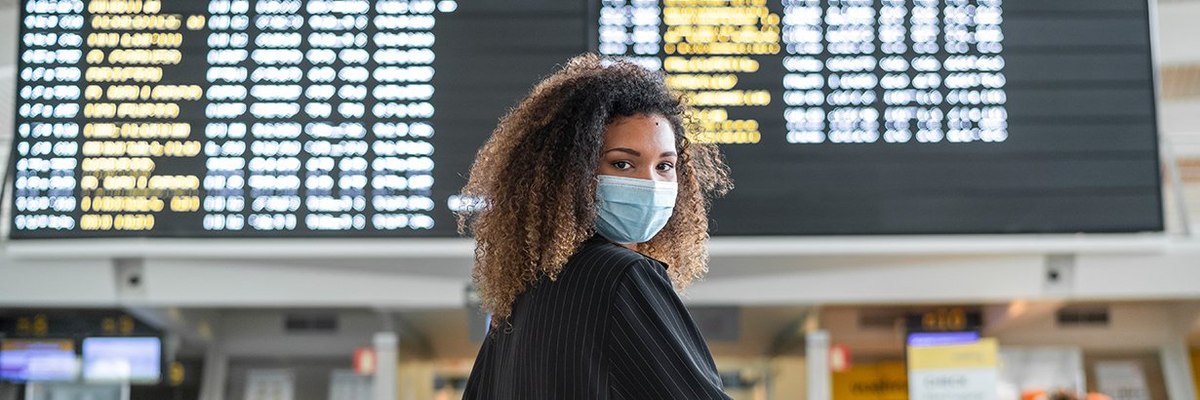
Government’s new traffic light system for travel does little to reassure potential holidaymakers
Just one in three English people think international travel would be worth it if it meant taking COVID tests before departure and after arrival
With lockdown restrictions gradually easing, and the summer fast approaching, the issue of foreign holidays has risen up the public's agenda recently. Last week the government announced its latest plans for allowing people in England to go abroad, with the introduction of a traffic light system that will categorise countries as either 'red', 'amber' or 'green' according to the infection and vaccination rates in those countries.
New YouGov polling shows that the policy is largely supported by the English public, with close to two thirds (64%) in favour. There is broad support across the political divide, with 72% of Conservative voters and 59% of Labour voters backing the policy. However, the view is more pessimistic in terms of how effective it will be, with just a third (33%) confident that this system will prevent the spread of coronavirus internationally (compared to 52% who are not confident).
Few English people would feel comfortable travelling abroad once restrictions are lifted…
YouGov also asked how comfortable people would feel travelling abroad, and whether they think the various rules make travelling worthwhile. Just three in ten (30%) say that they would feel comfortable travelling once restrictions are lifted – close to two thirds (63%) would feel uncomfortable.
This figure falls to just 21% amongst those aged 65 and over, with 77% saying they would not feel comfortable, despite this group being the first to receive the vaccine. In contrast, younger adults, who will be the last to receive the vaccine, are most likely to say they feel comfortable about travelling abroad when it is permitted (38%), although a half (51%) are still apprehensive.
…and most are unfamiliar with the new rules for international travel
Under current lockdown plans, international travel for non-essential reasons is due to resume on 17 May, but just a third (35%) of English adults correctly identified this date. Another third think that they cannot go abroad until 21 June or later (35%), with almost as many (29%) not sure.
Looking at the different rules that will apply to people travelling to and from the three categories of country, there is a distinct lack of awareness over what will be required from travellers in terms of testing and quarantine. Just 15% are able to identify the two requirements for a ‘green’ country - a negative test before departure from the country and again on arrival in the UK.
One in twelve (8%) think that a negative test only has to be presented before boarding the plane home, and the same proportion think a negative test is only required on arrival in the UK, but not both. More than 4 in 10 (42%) say they don't know what the requirements are at all.
The picture is similarly bleak in terms of people's understanding of ‘amber’ countries. Just 7% could identify that an amber country will require a negative test before and after arrival in the UK, as well as 10 days isolation at home. More than half (53%) don't know at all.
A much larger number of people correctly identified that travel to ‘red’ countries is banned entirely, at 32%. Nevertheless, almost half (46%) don't know about the restrictions at all.
The English public are also pessimistic about whether travelling abroad is worth having to follow these extra measures. Having been told that travel to a 'green' country would require tests before and after arrival back in the UK, just a third (33%) feel a 'green' country is worth travelling to. Half (48%) think it would not be worth travelling in such circumstances.
The youngest adults – those aged 18-24 – are much more likely to consider a holiday to a ‘green’ country, with half (50%) saying they wouldn’t be put off by the requirements. Just 22% of those aged 65 and above feel the same way.
When it comes to ‘amber’ countries, just 15% of adults say it would still be worth it to travel to such places given the additional rules (tests before and after arrival, and isolation at home for 10 days). Seven in ten (70%) say it would not be worth doing so, presenting a worrying picture for the travel industry. Industry leaders have already expressed concern at the lack of clarity concerning the timeline for these measures, as well as which category different countries will fall into.